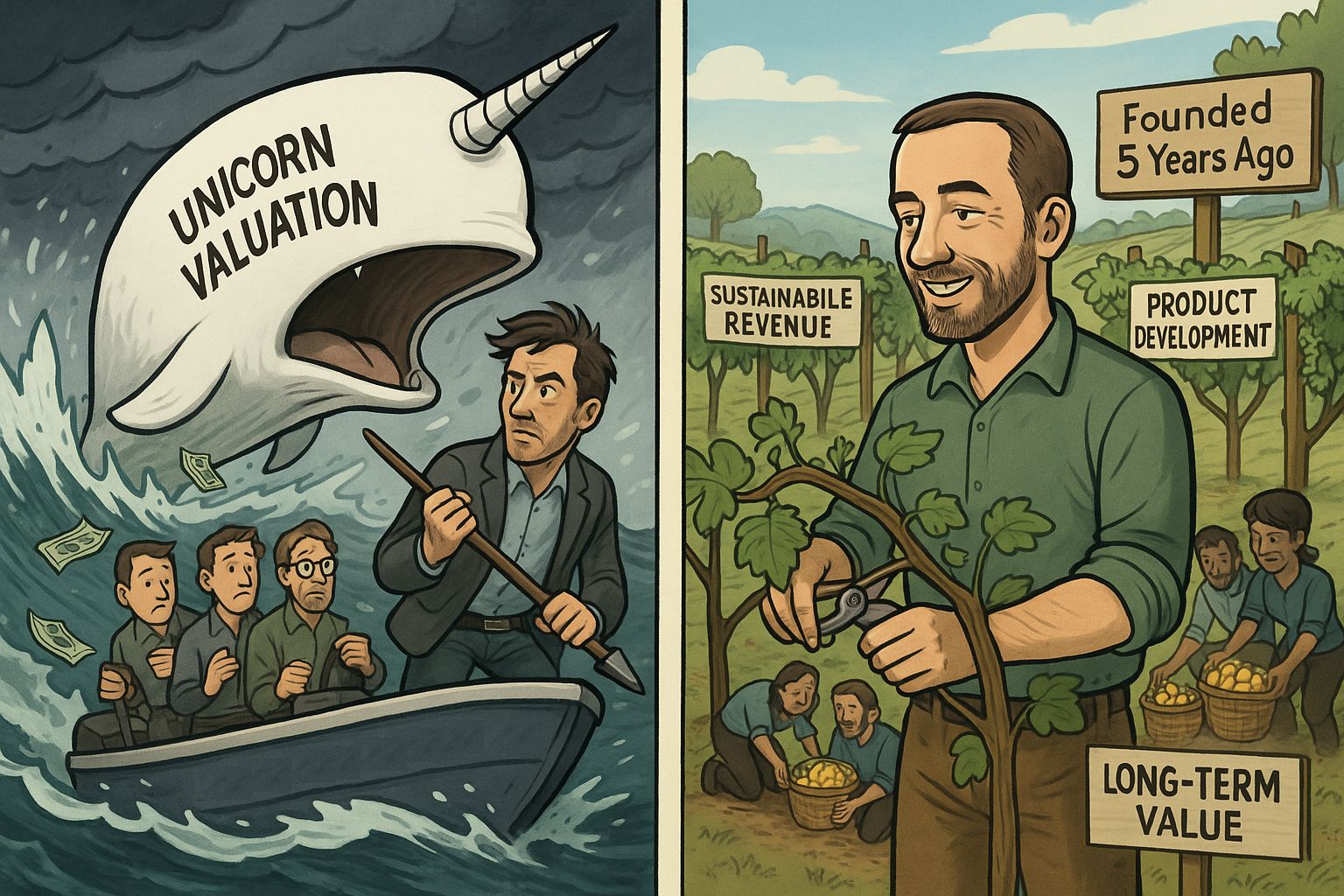When it comes to startup culture, one of the most poignant and unlikely lessons comes from Herman Melville's classic, Moby Dick. At first glance, the story of Captain Ahab's obsessive pursuit of the great white whale might not seem like fertile ground for startup wisdom. Yet, it holds a cautionary tale for founders, investors, and startup teams alike. Ahab's journey is a vivid metaphor for the pitfalls of single-minded obsession, especially when the pursuit of one seemingly unattainable goal leads to ruin.
Whales and the Startup Dream
In the startup world, the "whale" can take many forms: a massive market share, an elusive unicorn valuation, or a singular, groundbreaking innovation. Founders often embark on their entrepreneurial journey with the vision of capturing their own great white whale. But as Ahab’s story warns us, this singular obsession can become all-consuming. It can lead to decisions that ignore sustainability, long-term value, and the well-being of everyone involved, from employees to customers to the broader community.
Chasing whales often fosters a "get-rich-quick" mentality. The startup becomes a tool to exploit a market, or its people, for short-term gains. It might mean burning through resources without regard for what happens when the whale is finally caught (or not). As in Moby Dick, the result is often a destructive spiral that ends with a shipwreck rather than success.
The Vineyard as a Sustainable Startup Model
Now consider an alternative: the vineyard. Unlike whale hunting, cultivating a vineyard is about patience, care, and sustainability. A vineyard is a long-term investment, where seeds are planted and nurtured over time. The harvest grows richer with age, provided the vines are tended to diligently.
In the startup context, a "vineyard" represents a business built on sustainable practices and long-term value creation. These are startups that focus on:
- Planting Seeds: Building strong foundations with thoughtful product development, customer relationships, and scalable operations.
- Continuous Care: Listening to feedback, iterating thoughtfully, and ensuring the business adapts to the needs of its customers and market.
- Community Growth: Contributing to the broader ecosystem, ensuring that success is shared with employees, partners, and stakeholders.
- Patience: Understanding that growth takes time, and valuing consistent revenue and incremental success over the lure of a massive, quick payday.
Choosing the Vineyard Over the Whale
The vineyard mindset prioritizes long-term impact and value over short-term wins. It’s about creating something that not only survives but thrives, becoming richer and more impactful with time. Startups that adopt this model are better positioned to weather market fluctuations, adapt to change, and deliver sustained value to their customers and communities.
By contrast, the "whale" mindset often leads to burnout, ethical compromises, and a business that’s only viable until the next whale-sized opportunity comes along. Worse, it perpetuates a culture of exploitation of resources, people, and communities leaving wreckage in its wake.
A Call to Founders and Teams
As founders, investors, and employees, we have a choice. Do we chase the whale, risking it all for a fleeting chance at glory? Or do we build vineyards, cultivating businesses that grow steadily, sustainably, and meaningfully over time?
Moby Dick offers a stark warning against obsession and short-sighted ambition. But it also leaves us with a valuable lesson: the importance of balance, purpose, and foresight. Let’s learn from Ahab’s mistakes and focus on building vineyards, startups that enrich everyone involved and contribute positively to the world around them.
The next time you find yourself tempted by the allure of the whale, take a moment to consider the vineyard instead. The harvest may take longer, but the rewards are far more enduring.